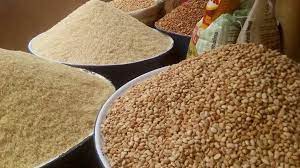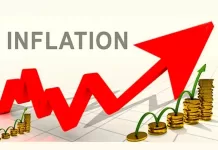If out of 200 million citizens, 25 million are experiencing acute food insecurity then serious trouble might be brewing.
Experts believe that vulnerable people will be most affected if food inflation continues to rise unabated.

While some people have nothing to eat, some are eating to their full and even wasting it because there’s more than enough.
So, you may say it is a case of “different strokes for different folks”.
You May Also Like: Federal Government Committed To Achieving Food Security
Nigeria as a nation, is experiencing food inflation at a rate it has never experienced before.
And the masses are more on the receiving end of this unpleasant situation.
Since the government removed fuel subsidy in May this year, the prices of foodstuffs have gone outrageously high.
Transportation and energy have also been affected and Nigerians aren’t finding this funny.
Food vendors are closing shop, fruit sellers are also lamenting the cost of transporting their goods from farm to market.
A baker who makes snacks for schoolchildren wept when she told her story.
She said her business had crashed because she could no longer afford to buy materials.
According to her, half a bag of flour was what she used on a daily basis but now, even to afford paint buckets of flour is hard.
She has since started contemplating going back to the village with the way things are going with her business.
Sadly, the situation has affected her to the point that she makes no gains or profit from her business.
Another vendor who sells foodstuff has had to stop her children from going to school so that they can help her.
She could no longer afford to pay the girls who work for her.
Unfortunately, this food inflation does not look like what is going away in a hurry, therefore the government must be creative.
Have You Read: Farmers Worried Over CBN Interest Rate Vs Tinubu’s Food Security Agenda
Data analysts put Nigeria among the countries with the highest food expenditure with an estimated 60% of total personal income spent on food.
The United Nations estimates 25 million people in Nigeria — or about 15% of the total population — are food insecure.
Sadly, a clear coast is not in sight, since the country depends largely on imported goods.
Unless something changes, many Nigerians will struggle to get by from day to day.





